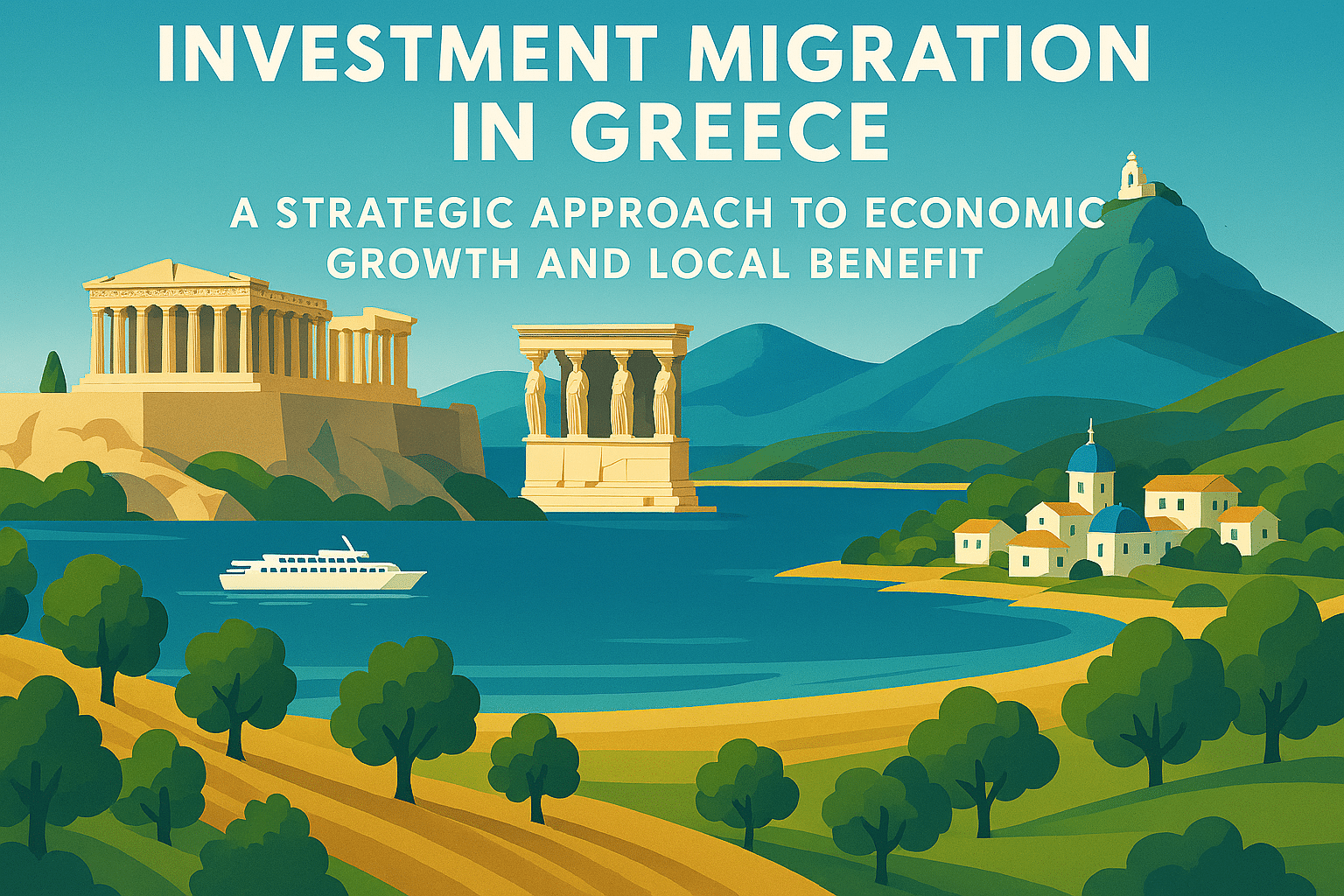Investment Migration in Greece: A Strategic Approach to Economic Growth and Local Benefit

An article written by Christina Georgaki, Founder of Georgaki & Partners Law Firm for the IM Yearbook 2025.
In 2024, Greece adopted a distinctive approach to investment migration, diverging from the broader European trend. While the European Union has expressed increasing opposition to such schemes, Greece has recalibrated its Golden Visa programme to attract foreign capital while addressing local concerns.
Despite external pressures, Greece’s programme has been restructured to ensure both local residents and investors benefit, maintaining economic growth without exacerbating housing challenges. Greece’s Golden Visa programme initially offered a five-year residency permit to non-EU/EEA nationals in exchange for a €250,000 property investment. However, in response to growing housing pressures, Greece has restructured the programme with a two-tiered zoning system. High-demand areas like Athens, Thessaloniki, and islands with over 3,100 inhabitants such as Mykonos, Santorini, and Crete now require a minimum investment of €800,000. Other regions have a reduced threshold of €400,000. Furthermore, Greece continues to offer exceptions at the €250,000 investment level for specific projects. These include urban renewal initiatives, such as converting commercial properties to residential use and restoring listed historical buildings.
Greek Prime Minister Kyriakos Mitsotakis also recently announced the inclusion of startup investments in the Golden Visa programme. Under this expansion, foreign investors who contribute €250,000 to Greek startups will be eligible for a five-year residency permit. Although detailed information is still forthcoming, this new pathway highlights Greece’s efforts to diversify its investment migration offerings and promote innovation.
The success of Greece’s Golden Visa programme can be attributed to the country’s stability and consistency in policy. Unlike other European nations that have reduced or eliminated similar programmes, Greece has remained flexible in adjusting the investment thresholds to align with local economic conditions.
Reports from 2018 indicate that the Golden Visa programme accounted for one-third of all real estate transactions in Greece, underscoring its importance in driving economic activity. Between 2014 and 2021, a total of 9,610 main applicants received Golden Visas in Greece.
Yet, in 2023, over 31,000 Greek Golden Visa permits were granted to the main applicants and their dependents, generating more than €2.6 billion in investment into the Greek economy. In the first seven months of 2024 alone, the country marked a total of 4,734 applications, contributing over €1.2 billion in economic benefit, reinforcing the program’s vital role in bolstering Greece’s economy.
By adapting to the changing needs of both the local population and global investors, Greece has created a programme that fosters long-term economic growth, supports innovation, and preserves its cultural identity.
As other European nations retreat from such initiatives, Greece’s commitment to maintaining a balanced, strategic approach ensures that both local communities and international investors continue to reap the rewards of the programme.
